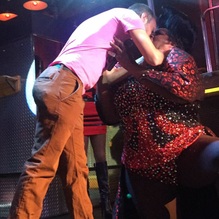
Latrice Royale, drag extraordinaire and a RuPaul's Drag Race Queen took the plunge on Saturday night during a performance at R Place in Seattle’s Capital Hill to proposal to boyfriend Christopher Hamblin - down on one knee and all.
Bitch went to Jared! The proposal was captured by another RuPaul queen and friend, JuJubee. The large-than-life star was one of many who felt marriage just wasn't on her list of priorities, but Royale shared, “...Bitch, I’ve had a change of heart!” Congratulations to the happy couple! 
Teresa Ewers, Editor-in-Chief
PRIDE & Equality Magazine
0 Comments
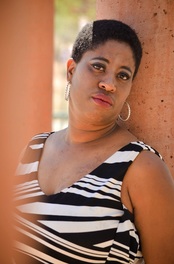 ®Ariel Bisbee Photography ®Ariel Bisbee Photography WHAT ARE WE CELEBRATING, REALLY? As we prepare to celebrate another year of Pride, I have found myself having conversations with those in the community who are wondering where our community is headed. As we watch cities like Austin, Phoenix, and San Francisco continue to grow, Albuquerque sits back as it loses cherish venues and seeing our annual festivals turn into a day of bumping and grinding. Is this what the community is reduced to? What will it take to get back on track and truly build back the GLBTQ community to what we witnessed 20 years ago? These are real concerns that are still being questioned, but organizations, leaders and those we looked to make this happen are either not being heard or don’t find it important enough to talk about. I have found failures and successes with this community and will continue to fight, but it’s time for all of us to look for more, ask for more and expect more from its citizens. So, this year, as I’ve said every year, make Pride a daily goal, not an annual one. Remember those who came before you and made a difference in the fight for equality. Teresa Maria Robinson-Ewers, Editor-in-Chief PRIDE & Equality Magazine 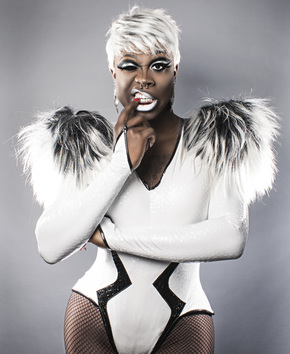 RuPaul's Drag Race has crowned another queen, but this year’s winner is anything, but ordinary. From the name to her demeanor, Bob The Drag Queen proved she was a force to be reckoned with and gave everyone a run for their money. Let’s start with the most important question first - why enter a room purse first? Oh – because it is a known fact that a lady carry an evening bag at dinner time! What did you want to be when you grew up? A candy maker, or an accountant. It depends on what point of life, I guess. I wanted to be a wrestler at a point in time. You are a New York drag. What was drag like in New York in your youth? I moved here when I was 22, but in Bob’s youth NY drag was very supportive, and not as competitive. You see the same queens on all different nights, and none of you are making any money. What was it that brought such allure when it came to drag? I think it was the combination of art forms rolled into one. You can be a makeup artist, dancer, actor, comedian, DJ, sound editor – it’s the ultimate art form. Why Drag Race? What led to the decision to take it to this platform? It’s my favorite TV show and, I am a drag queen, so it was the clear and obvious next step. What was the moment like when you meet the infamous Rupaul? I met him before Drag Race, at a book signing after the 1st or 2nd season. We were at Borders, which isn’t even there anymore, and I was getting closer and closer. When I got to the front of the line I was beaming ear to ear. I was so excited I can’t even remember what I did or said. We see what the camera want us to see when it comes to the show. What was the experience like? Quiet – you don’t do anything off camera and that is the real truth! You really didn’t miss anything. I have to say in the history of the show that you are one of the most impressive queens. What is your thought process before a performance and where does that confidence come from? Before a performance I am thinking about what I am gonna do or say…the confidence comes from a past of not having confidence. I taught myself to appreciate myself. Who are your inspirations when it comes to drag? Jackie Pete, RuPaul – those have to be my favorites. There are so many, though - Lady Bunny, Bianca Del Rio… Well, you are now queen and you accepted the crown with pride. What was the moment like? The moment I found out I was crying. It was a combination of my dreams. Do you have folks coming out of the woodwork now wanting to be “friends” after the win? Not really. I mean, I have friends reaching out to me to congratulate me, who I’ve always known. I don’t sense anyone taking advantage of me, though. We already know you’ve made a name for yourself, but what will you do with this extended fame? I’m working on a standup comedy documentary called Queen for the People. If you want to help the project, you can go to my Instagram and click the link in the bio. I just came into some money, so I lowered my goal from $70,000 to $20,000. What piece of advice would you offer today’s youth? It’s important to learn to love yourself at a young age, and I know that’s the hardest age to love yourself. But you will lay down the foundation for future confidence that will be so important. What would you like your legacy to be? I want to give back to the community, to entertain children, and to make people laugh. Charity and hilarity. - Teresa Ewers To learn more about Bob’s documentary, A Queen for the People and how you can support, visit her Seed & Spark page at https://www.seedandspark.com/studio/a-queen-for-the-people#wishlist PRIDE & Equality celebrates another year of Models of Hope. Celebrating their 8th year, the Vincent R. Johnson Models of Hope Awards honors individuals and organizations making a difference and can be seen as role models in the community. Models of Hope has created a roster of quality honorees over the past seven years and this year’s nominees are no exception. Take a look at who we will be honoring on July 22nd at the UNM Student Union Building. 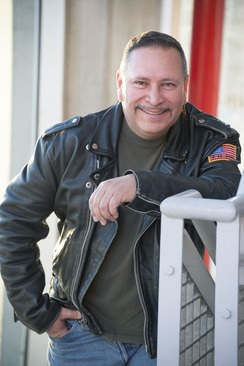 ®Max Woltman Photography ®Max Woltman Photography Community Honoree Mauro Walden-Montoya Professional Volunteer/President ABQ LGBTQ Chamber of Commerce How did you get involved with your organization(s) in the GLBTQ community? I have always been an activist, including working on political campaigns in high school and college. After graduation from law school, I wanted to do something good with my law degree, so I started volunteering for an AIDS clinic in Washington, DC in 1985. In 1986 they hired me as their first legal director and I have been involved in AIDS and LGBTQ matters since then. Having been diagnosed with HIV in 1991, I never thought I’d live to see the 21st Century and I just turned 58 and will hit 25 years this year living with HIV. I have been on at least 50 boards, about 95% LGBTQ, I have been president of several organizations, and I have been president of for 2 years, and involved with, the ABQ LGBTQ Chamber of Commerce for 5 years now. I am also on the board of the SW G&L Film Festival, the WHEELS Museum and am one of the heads of the ABQ Leather Daddies. What are some of your achievements and/or awards that you’ve received for your service? I was just honored in DC in May for starting the AIDS legal program 30 years ago. I have been honored as a leatherman, as an attorney, and as an LGBTQ advocate, including being Grand Marshall of the 1988 DC Pride Parade, and several other honors. Tell us about your history. What was life like when you were a youth? I grew up in Albuquerque, went to a catholic school until 10th grade, and am from a big Latino family. Family was and is always very important to me. I knew I was “different” since the time I was 6, but I thought everyone was like me then. Starting school I quickly realized that I was different. Also having an unusual name, it was sometimes challenging. But what was more challenging was being called a sissy and being made fun of for not being good at sports or for playing the piano. It was difficult at times, but that was in the 1960s (pre-Stonewall) and 1970s. The term gay didn’t even exist back then for homosexuals. My extended family would make fun of gay people, calling a gay man “one of those” and doing a weird hand motion. I went along with the crowds, not wanting to be different, but always had my same-sex attraction. I was set back by being abused by a priest when I was 10 and 11. But I didn’t let it interfere with my accepting being gay once I got to college. However, I didn’t officially come out as gay until 1982, when I met my ex in law school. Telling my parents in 1982 was very difficult and caused rifts in my family for a while. But everyone got used to it and now my husband and I are accepted by my entire family. What was the changing moment in your life that led to you wanting to make a difference and live life as the real you? I think finding my ex-lover in law school is what prompted me to finally come out of the closet. We told some friends, but not others. Some had adverse reactions, but no one really stopped being my friend. Some were surprised - which surprised us given that we were together virtually 24/7. But when I truly came into my own I found my calling was volunteering. Then being hired to be the legal director for AIDS with a population that was under attack, was being totally neglected and the only ones helping was ourselves. I became a soldier, then eventually a “general” in the war on AIDS and the fight for LGBTQ rights. What piece of advice would you give today GLBTQ youth? Know it gets better. Know you can live through this. Know that you will be happy about being yourself someday and if you’re in a tough situation where it feels no one accepts you, know there are people who will WHOLEHEARTEDLY accept you and take you in. Know how to protect yourself from bullying and from AIDS and other diseases. And know that we, your elders, are here for you anytime you need us, to talk to and unburden yourself, to help out if you need a hand, or just to give you a hug and say YOU ARE LOVED. 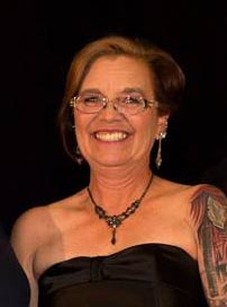 ®Albuquerque Pride ®Albuquerque Pride Community Honoree Gwen Cannova-Kinkie Albuquerque Pride How did you get involved with your organization(s) in the GLBTQ community? I became a member of the Albuquerque Social Club in 2002 (I believe), and then continued with getting involved with Albuquerque Pride and Come Out Come Out/Sinatra Devine. What are some of your achievements and/or awards that you’ve received for your service? I have received the Rick Diamond Heart Award, Outstanding Award for stylist and salon, Miss Gay New Mexico USofA Newcomer Contributor, and Cheyanne Pretty Hospitality Award. Tell us about your history. What was life like when you were a youth? When I was a youth I lived in a Kansas town (even though I was born and raised in New Mexico) that it was expected that you went to school, graduated, went to college, found a husband/wife, got married, had kids, and lived the American dream. There was no talk of any kind of “alternative” lifestyle. I kept my thoughts and desires to myself and as a result did not “come out” until my late 30’s. What was the changing moment in your life that lead to you wanting to make a difference and live life as the real you? After I married my wife and our youngest moved out, she asked me, “Who is Gwen? “ It made me think. It made me question who I was. What piece of advice would you give today GLBTQ youth? LOL! My favorite question! Do not take advantage of the rights you have as a GLBTQ person; people died for you to have these rights. People die every day in some countries just because someone suspects they are GLBTQ. Be respectful of others, know your own history, know how we got to where we are and continue to fight and vote for equal rights for all human beings. 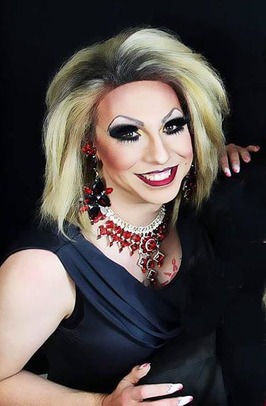 ®Albuquerque Pride ®Albuquerque Pride Community Honoree Marshall Martinez (AKA LaRhya Daniels) Public Affairs Manager /Planned Parenthood Rocky Mountains-New Mexico How did you get involved with your organization(s) in the GLBTQ community? I became involved with Equality New Mexico after moving to Albuquerque for school when I was 18 years old. But my work in the LGBTQ Community began when I was about 14 years old, I signed up for a voluntary HIV/AIDS Awareness class and eventually became so interested in the work that I was the first Peer Educator in my school in Alamogordo. My work evolved in Alamogordo and I eventually helped open the first Teen Drop-In Center in the community, specializing in creating a safe space for LGBTQ Teens to talk openly and honestly about their struggles. What are some of your achievements and/or awards that you’ve received for your service? I’ve reigned as Empress of the United Court of the Sandias – which is an elected position based on service and ability/desire to serve a specific role for one year. I have also been honored to be voted ABQ Pride’s OUTStanding Social Influencer. In High School, I was honored to receive multiple awards from local, county and state organizations for my dedication to community service. Tell us about your history. What was life like when you were a youth? I don’t enjoy the fact that I’m not considered a “youth” anymore – for starters. I grew up in the late 90s, a time when Apps didn’t exist and even Internet access was sporadic at best. I grew up in a small town and even though I thought I was gay at a very young age, I had no way to be sure and certainly no examples to help verify this idea. The only support I had was through the Peer Education and HIV programs where I did a lot of volunteer work but was not out. The fear with which I lived each day until coming out is still inexplicable to others. Mathew Sheppard was beaten and eventually died within months of my “planned” coming out to my family and friends, which only scared me even more into secrecy. I am so grateful to a loving and respectful family who treated me with kindness and compassion and understanding when I came out, but even today I am shocked by how far we have come as a community – victories I never truly thought I would live to see. What was the changing moment in your life that lead to you wanting to make a difference and live life as the real you? My younger sister was born when I was 12 years old. Seeing her as a baby, and knowing that there was more to come, had the biggest impact on my desire and dedication to make my communities better. I began waking up each day wondering how my life and my role, not only as a bigger brother, but also as a citizen of the world so to speak, could lead to her life being better, and through that the lives of so many other young people. What piece of advice would you give today GLBTQ youth? My advice to all youth, is to consider themselves part of something bigger, to find something bigger than themselves to be part of. The feeling of inclusion and acceptance is a social need, but the outcome of that is the ability to be influential. While I believe naturally that “it gets better” and that we should hold on through those tough times, there is no greater way to get through struggle than to have a ‘responsibility” that pulls one through the darkest hours. Joining organizations, clubs, social groups that are working for a common good will steel the spine in a way that has lasting impact – get through your hard times by making less hard times for others. It works. Not present: Business / Organization Honoree: UNM Queer Student Alliance and Youth Honoree: New Mexico GSA Network.
Vincent R. Johnson Models of Hope Awards is on Friday, July 22nd, 2016. Learn more at http://www.myprideonline.com/models-of-hope.html PRIDE & Equality - PRIDE 2016: Extras: The Dolls Talk Priscilla, Queen of the Desert, The Musical6/5/2016 They say that no one should rest on their laurels. When it comes to The Dolls, they go way beyond that. Founder Ken Ansloan, after a successful run with their last show, Cinderella, An E! True Hollywood Story, decided they needed to take their next show one step further. Making the decision to direct and become Executive Producer of Priscilla Queen of the Desert, The Musical, led to many first for the drag ensemble. Ansloan and Co-Director and Producer, Jessica Osbourne, sat down with PRIDE & Equality and New Mexico Entertainment for a dual interview to talk about their decision to take on this beloved show and what they have in store.
You chose a very larger-than-life to produce here in Albuquerque. Why Priscilla? Ken Ansloan: I wanted to take The Dolls to the next level and do a bigger show than we had ever done before. I thought of “Priscilla Queen of the Desert The Musical”. I applied for the rights which weren’t available yet. So I put my name on a waiting list. To be honest, when they called me to let me know that the rights had become available, I had forgotten about it. When they told me that my production would be the regional debut, I was both nervous and excited. Jessica Osbourne: Ken approached me and told me that he had optioned the rights and that he was on the waiting list to do the show and asked me if I would assistant direct/produce if they came available. I saw the show years ago when my good friend, Phillip, was in the show on the West End and loved it. I figured if there was ever a musical to do this could be the most fun and entertaining. So I said hells yes! What has been some highlights in doing this show? KA: The highlights have been having auditions and seeing all the talent that is here in Albuquerque. The Dolls have been a troupe for so many years and we have worked together on countless productions. That has been wonderful and we are like a family, BUT getting to meet new talent is very exciting as well! JO: Sort of how things have come together really. When we found out we had dates, I found out that my friend, Phillip, was moving to the USA to be with his now husband and that he would be looking for a project. We were honored when he said yes to playing Bernadette and so excited. It was so exciting to see so much talent come out of the woodwork in Albuquerque to audition. But I think one of the most exciting things was having a bus donated to us so that we can move around Albuquerque to sell tickets and spread the word! So keep an eye out for us! There are a lot of die hard fans when it comes to the movie. What will the musical offer that the movie doesn’t? KA: The main difference between the movie and the musical is the addition of The Divas. They are like the Greek Chorus of the show and they get to sing many exciting songs. It is also wonderful to see all the songs that are in a movie tell a story. The musical uses these songs to express the actors feelings. The writers have done a wonderful job of incorporating these songs into the storyline. JO: Live singing and music! There is nothing quite like it. Also experiencing their journey whilst experiencing glitter and your favorite hit songs is an experience like no other. Now The Dolls are known for their acting chops, but for the first time, with this show, you’ll be performing with a live orchestra. How does that feel and what others first have you experienced with this show? KA: It is so exciting to have a live orchestra. This is a definite first! We have a musical director, Nathaniel Robert Flake, and he is amazing. He has made us all feel so at ease with this transition! The Dolls are also known for all our amazing costumes. The costumes in this show are going to be even more amazing (if you can believe that). We have had original costumes made before, but this is the first show where every single costume has been made specifically for this show. Joe Moncada is our costume designer and I don’t know how he is doing it, but he is making every single frock and headdress. Everything is being adorned. I think this show has more sequins and feathers than you’ll find in all of Las Vegas! JO: I feel like this is the next step for The Dolls. There has always been a musical type quality to their shows, with songs intermingled between the scenes furthering the plot. At first, it was drag, we added live singing during the past year and now full blown live music…it seemed like the natural progression. What do you want people feeling when they leave the theater after seeing Priscilla the Musical? KA: The message of Priscilla Queen of the Desert The Musical is an extremely heartwarming one. I want them to take away that message, but I also want them to know that they have seen a loud and proud musical and be singing and boogieing to the songs from the musical for weeks to come! JO: The joy of familial love - both born and found. They’ll come out with that feeling of your heart wanting to burst. There’ll be so much love in that room, you could hardly stand it! - Teresa Ewers Priscilla Queen of the Desert The Musical is running from July 1-24 at the National Hispanic Cultural Center. Tickets can be purchased at http://www.nhccnm.org/event/dolls-present-priscilla-queen-desert-musical-rental/ We are now in a day and age where being put in a box to describe yourself is no longer a way of life. Digital Producer and filmmaker Ishita Srivistava with her new digital storytelling project, The G Word, looks to break the norm. Srivistava, like the rest of the country, has witnessed LGBT rights becoming different from everyone else’s. A reason for that is the barriers we create due to gender norms and stereotypes. This project will hopefully open the door to transforming how we understand these and start to create change. Srivistava shared the importance of covering this topic. “It’s important to cover the topic of gender, and gender norms, because, in one way or another, they affect pretty much everyone who is human. By “norms” around gender, we mean the roles and expectations that society and culture impose on all of us based on our perceived gender. We say that those roles can be limiting, even damaging. And as we know, they often lead to discrimination and violence. We believe that if we can–individually and as a society—bust through those norms, we can build a world where everyone can be who they need to be and where all of us are respected for our full humanity. That would be a pretty great world. By inviting people to share their stories about gender norms, and to envision a world in which we can all live with respect, we enable people to start transforming those norms and get closer to imagining that world.”
The G Word gives citizens a voice to share their gender norm experiences and stories on a digital level. Readers can go to The G Word website and help educate the world on what they went through.. Srivistava feels that when everyone shares their experiences, a change can truly begin. “ Stories connect people. They make people say, “Me too!” about things they might not have felt connected to when they read about them as disembodied “issues” rather than as a relatable experience from a fellow human. Stories allow people to process their experiences and heal; they help form a community. They inspire us to expand or change our point of view. Most important to my work, stories can provide an alternative to mainstream narratives and allow us to break through norms. And in the right context, stories can inspire people to take action for change—to change not just their own lives but culture itself.” To learn more about The G Word visit http://us.breakthrough.tv/thegword/. The Republican Speaker of the House and failed vice-presidential candidate met ceremoniously in early May with a volatile, narcissistic reality TV star who is the presumptive Republican presidential candidate. The forty-five-minute meeting produced hype, not information, and exhibited the gamesmanship central to many political campaigns.
It evoked another round of the questions that people pose during political posturing. But the key to understanding it is that it involved two very different politicians who both must maintain their image of power within the same Party. There are political season questions that are regularly asked about both major parties, with the expectation of rational answers. How could someone support that guy? Why would someone support one candidate or another? In another conversation, the questions might be: why isn’t someone condemning discriminatory laws? Don’t they understand that those laws won’t hold up in court? Or: do you think someone is going to govern the way they campaign? Can I trust someone’s promises? People will ask similar questions throughout any election cycle, especially one with both apparent main-party presidential candidates having the lowest approval ratings in generations. And the real answers to the questions tell us what candidates actually value. As many politicians become acclimated to holding office, their overriding goal becomes maintaining their positions and power. So uppermost in the minds of those down-ticket in presidential elections is weighing the chances of whether their or another presidential candidate might win and how best to maintain access and clout when she/he does or doesn’t. Will my decision mean I keep my legislative committee assignments or be punished? Will I be appointed to chair a prestigious committee? Will I get party financial support for my reelection? What should be a means (holding office) to achieving goals for constituents and country, becomes the end: getting elected, reelected and maintaining power. So what politicians often do and say is based upon the value placed upon obtaining and maintaining their positions. When an election becomes one's value, then all they might otherwise value is subordinated to it. And there are many ways to do that. They sideline, postpone, play down, or talk as if they don’t absolutely value the causes they would otherwise support. They’re now persuaded that this is the way to get and maintain office and convinced that once securely in office they’ll champion what they believe that they highly value. They tell a group that “this isn’t the time” to push their cause because they - the right candidate the group should support - can’t get elected if they advocate for certain causes. Every oppressed group knows marginalization through being told that they have to wait - with the excuse that that’s how you’ve got to play politics. They deflect a group’s needs and demands by instructing them to reflect upon, and be thankful for, “how far they’ve come.” They mustn’t over-expect and should instead show gratefulness to all who’ve helped them come this far. They patronize a group by saying they don’t understand the real world of politics as well as the politician does. They thereby redefine the problem as the group’s own lack of political savvy and intelligence, not their difficulties. And speaking of political realities: a real danger is that anyone attaining public office might never feel, or be, secure enough to safely take up these postponed issues. When does one feel secure enough to value something greater than getting reelected and keeping power? When does someone actually prioritize for the values they profess and we wish they would? When do they take the chance of losing office because of the greater principles they claim to value? Have we all just given in to a form of hopeless politics instead of change? Granted: politics is the art of compromise. But should one compromise before they’ve advocated for their ideal proposal and never begin negotiations there? Granted: change often happens in increments, rather than all at once. Thus, each proposal should be understood as assuming the next step. But the test of honest incrementalism is whether it’s actually advocating a step forward to a valued goal or just an excuse to never move further. Is it an excuse to never follow up? Does it reveal that the professed ultimate values aren’t worth fighting for? It’s the responsibility of democratic citizenship to hold one’s representatives to the real end of it all, not just to get them elected. Citizens make it clear to their representatives what they want the end to be and then expect their representatives to work out how that is going to happen given political realities. So, the answers to the questions we have regarding why politicians do what they do are often political ones reflecting what posturing politicians think they require to gain and maintain position. That’s the logic behind them. You can hear, for example, these political calculations in Republican House Speaker Paul Ryan’s words after meeting with Donald Trump. Not surprisingly, Ryan is protecting his political career. Not only did he posture himself for future political runs by distancing from the losing presidential candidate whom he shared the ballot with, saying: “I didn’t agree with Mitt Romney on everything.” But he also positioned himself as the powerbroker who must approve of Trump. While the media fawned, Ryan talked about his discussions with Trump as probes of what they can agree upon and as a “process” he commands by drawing endorsement out. In addition, he defined Trump’s supporters as a “new group of conservatives” being brought into his fold. Throughout, politician Ryan spoke of determining whether Trump does or will agree with conservative (that is Ryan’s) principles. And in so doing he’s masterfully doing what politicians do: valuing most the maintenance of personal power and position. Robert N. Minor, Ph.D., Professor Emeritus of Religious Studies at the University of Kansas, is author of When Religion Is an Addiction;Scared Straight: Why It’s So Hard to Accept Gay People and Why It’s So Hard to Be Human: and Gay & Healthy in a Sick Society. Contact him at www.FairnessProject.org The Benefits of Gusbandry Being labeled as the “more honest Will & Grace”, The Benefits of Gusbandry is becoming a new refreshing show. Inspired by real-life relationships with Portland, Oregon-based creator Alicia J. Rose’s own “Gusbands” (a.k.a: gay best friends), The Benefits of Gusbandry centers around best friends Jackie, played by Brooke Totman (MADtv, The Groundlings) and River, played by Kurt Conroyd (Birds of Neptune, Fox Searchlight’s Wild) - two one-of-a-kind characters approaching 40 and follows them as they find something special in one another, navigating the modern world with a no-punches-pulled and occasionally filthy comedic purview, finding true love in a most unexpectedly platonic way. Seeing the importance of this show, creator Alicia J. Rose has also set up a Patreon funding site to help support the series and keep it free: https://www.patreon.com/Gusbandry Out of Iraq Out of Iraq is a love story of an Iraqi soldier and an Iraqi translator, both working with the US military and set in a war-torn country where their love is banned. Ramadi in 2004 was one of the most dangerous places in the world and the last place one might expect to find love, but that’s what happened when Nayyef (translator) met Btoo (Iraqi soldier). Despite the war and the dangers of being gay in Iraq, their relationship blossomed until Nayyef had to flee the country for his safety in 2009. Their separation marks the beginning of the most harrowing chapter of their love story and touches on some of the most pressing humanitarian issues still relevant today. Out of Iraq is a World of Wonder film produced by Fenton Bailey, Randy Barbato; produced by Eva Orner and Chris McKim; co-Directed by Academy Award-winner Eva Orner (“Taxi to the Dark Side”) and Chris McKim, and co-Produced by Aaron Butler. Kiki
Ball Culture is alive and well in this vivid documentary picking up where Paris is Burning left off. Kiki is an American-Swedish co-produced documentary film, released in 2016 directed by Sara Jordenö. The film profiles several young LGBT people of color participating in contemporary LGBT African American ball culture. Even though Kiki is compared to Paris, the movie stands on its own. In this film collaboration between Kiki gatekeeper, Twiggy Pucci Garçon, and Swedish filmmaker Sara Jordenö, viewers are granted exclusive access to this high-stakes world, where fierce Ballroom competitions serve as a gateway into conversations surrounding Black and Trans-Lives Matter movements. This new generation of Ballroom youth use the motto, “Not About Us Without Us,” and KIKI in kind has been made with extensive support and trust from the community, including an exhilarating score by renowned Ballroom and Voguing Producer Collective Qween Beat. Twiggy and Sara’s insider-outsider approach to their stories breathes fresh life into the representation of a marginalized community who demand visibility and real political power. 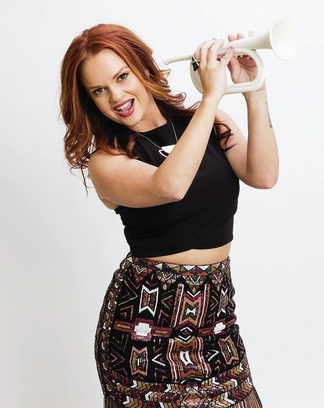 Kata Hay has been singing since she could talk. At age two, she begged her father to pay a $50 entrance fee for a beauty pageant. She ended up winning that pageant and started singing at Oprys and fairs around Oklahoma - even performing at the Rodeo Opry with Blake Shelton. When she was 13, she was urged by a young Kacey Musgraves to enter the National Yodeling Competition and ended up winning the crown for the next five years. She met her now ex-husband when she was 18 years old and together they performed at Dolly Parton’s Dixie Stampede and The Hatfield & McCoy Dinner Show. After her marriage fell apart, she met her current girlfriend, Savanna. The couple recently moved to Nashville where they work at The Wild Beaver Saloon.* Hay decided to take her love of music one step further and audition for the hit NBC competition, The Voice. Hay made it to the blind auditions for Season 10 where she performed a bold version of Gretchen Wilson’s Redneck Woman, which resulted in a three-chair turn by Adam Levine, Christina Aguilar, and Pharrell Williams. Kata shared with Blake Shelton, who did not turn around, that the two have been on stage together when she was three and he had a “mullet.” Kata, in her excitement for the three-chair turn, ran to Levine for turning his chair, but the real surprise was when Kata admitted that Aguilar was her first girl crush, which leads to Christina Aguilar planting a kiss on the fiery singer before Kata chose the Grammy® winner as her coach. Hay’s time on The Voice led to a powerful rendition of Aretha Franklin’s (You Make Me Feel Like) A Natural Woman and even though she didn’t win the title, Kata used the experience to further her singing career. With a voice that kills, Hay quite the future ahead of her and she is one that is humbled by the experiences. The night before she was eliminated from The Voice, Hay said, “No matter what happens tonight. I’m so thankful for my journey,” said Hay in an Instagram post before the live results show. “And will always adore @xtina (Christina Aguilera) for helping me find me, and be okay with what I found. Best experience of my life. Love you all!” No matter what’s in this girl’s future, Hay will have a very bright one. - Teresa Ewers *Provided by MPRM Communications Mom always said you were two of a kind.
You and your favorite sibling: yin and yang, two halves of a whole. A lot of film was spent documenting your lives. A lot of memories are shared when you get together. Once upon a time, you knew exactly what your sib was thinking – or did you? Read the new book “My Brother My Sister” by Molly Haskell, and you might wonder… Growing up in Richmond , Virginia , in the post-WWII years, Molly Haskell, her brother Chevey, and their friends enjoyed the same clubs, schools, cotillions, and churches. She remembers a childhood of “privilege” and happiness. Her brother remembers sneaking up to Haskell’s closet to try on her clothes. Of course, that was unknown to Haskell until years later, when Chevey came to her in New York and told her that he’d decided to act on something that had vexed him for decades: nervously, he explained that he had gender dysphoria. He’d been on hormones for months. Years ago, he’d thought of himself as “Ellen,” the woman he knew he was inside. It was something that Haskell never saw coming. Chevey had been married twice. His first wife knew of his feelings, as did his second wife, but the latter was struggling with acceptance. So, in fact, was Haskell, though she was also curious to know the particulars. When did Chevey know? (At age seven). How did he decide to do this? (The urge was so strong that he could do nothing else). Why did he wait 50-some years to transition? (Many reasons, including family). He likened his gender to a “birth defect.” It was time to make things right. As Chevey became Ellen, Haskell mourned the loss of her brother. When Ellen informed the rest of the family of her news, Haskell kept “waiting for the sky to fall” but nothing happened. Yes, there were slips, gaffes, hurts, and a few surprising revelations, but the world didn’t end. “Lucky for me,” says Haskell,” my newly minted sister is still the magnificent human being my brother was.” There’s an awful lot of Poor-Me-ing in the beginning of “My Brother My Sister;” a lot of hand-wringing from author Molly Haskell, and too much fretting about how her brother’s transformation would affect her. While some readers might imagine how they’d feel in the same situation, it’s pretty tedious reading here. And angsty, almost. Thankfully, the book gets better. Once Haskell’s story gets around to acceptance, readers are treated to a more relaxing read, one of discovery (both on Haskell’s part, and that of her sister), devotion, and of delight. That’s the raison d’etre of this book. What you’ll find from there to the end is why you’d want to read this book in the first place. Aside from a bumpy beginning and some surgery descriptions that are TMI-overload, I thought this was a good enough book. If you, too, are curious, or if your family is dealing with these same issues, “My Brother My Sister” may be one of a kind. - Terri Schlichenmeyer “My Brother My Sister” by Molly Haskell c.2013, Viking $26.95 / $28.50 Canada 213 pages |
P&E - After PrintHere are some of the latest articles and topics in the GLBT community. Archives
June 2024
Categories |

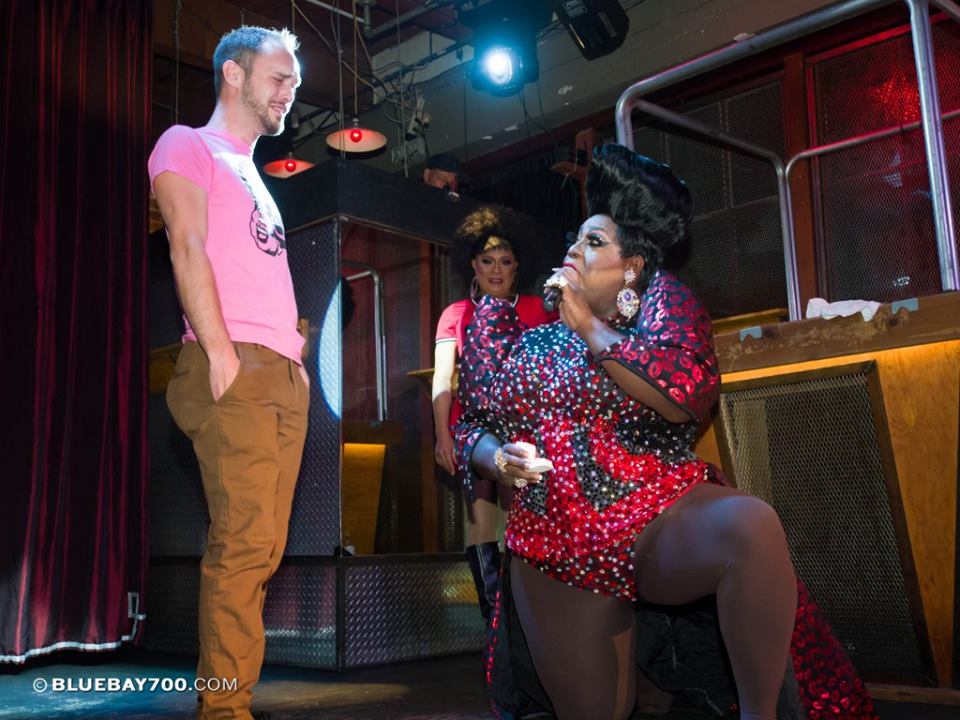
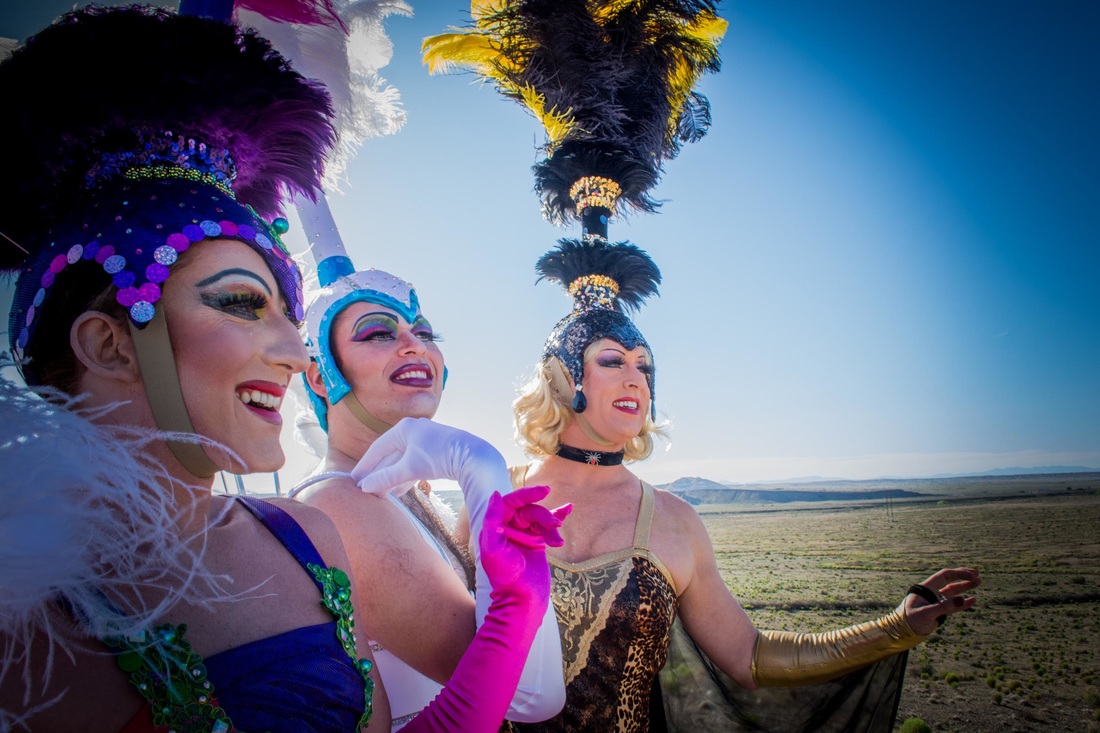
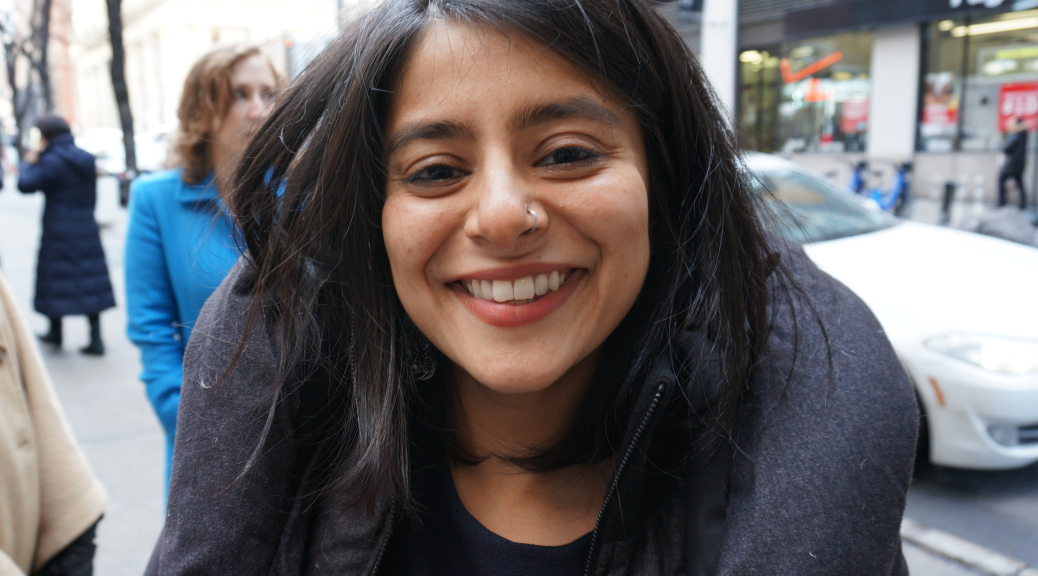
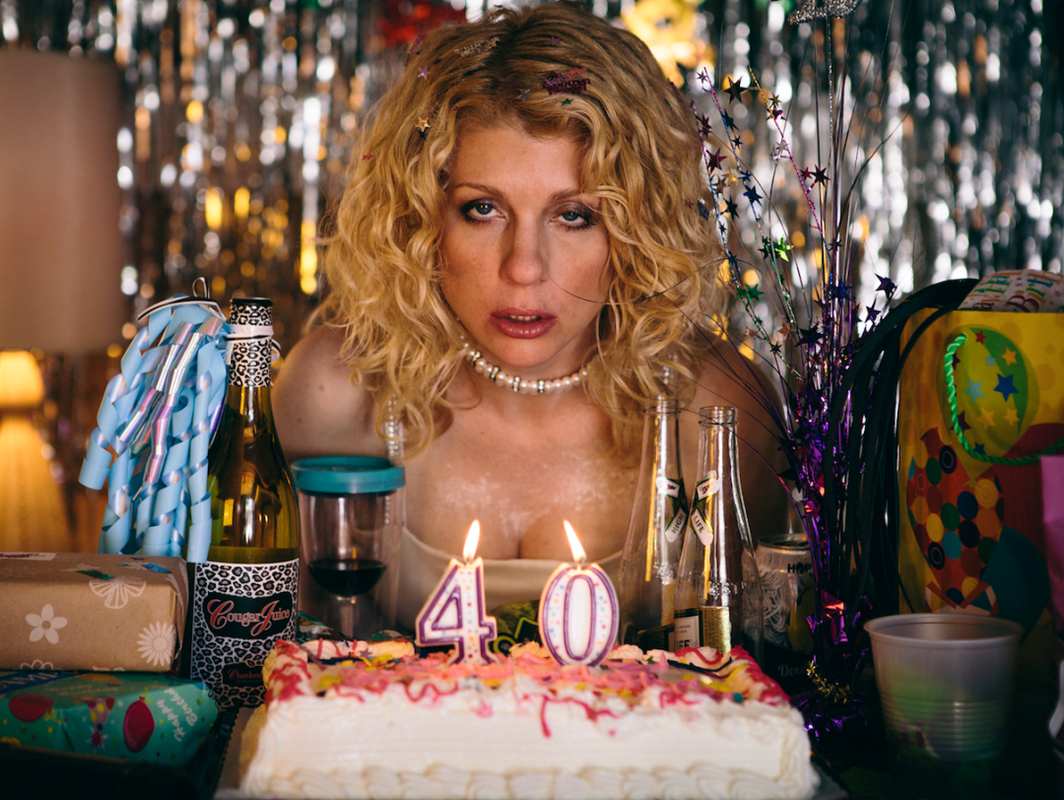
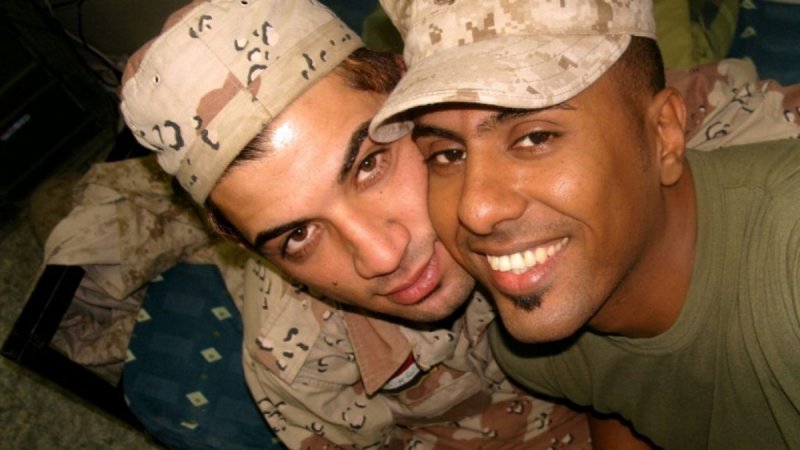
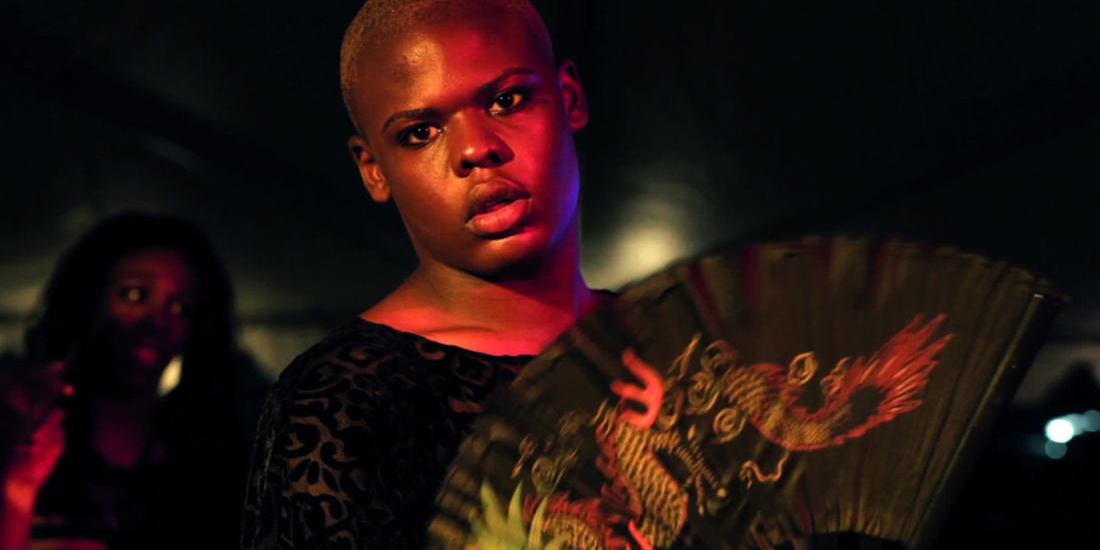
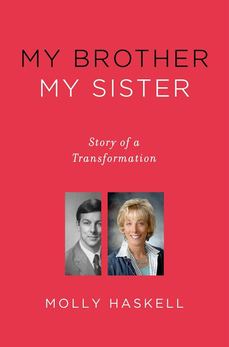
 RSS Feed
RSS Feed
